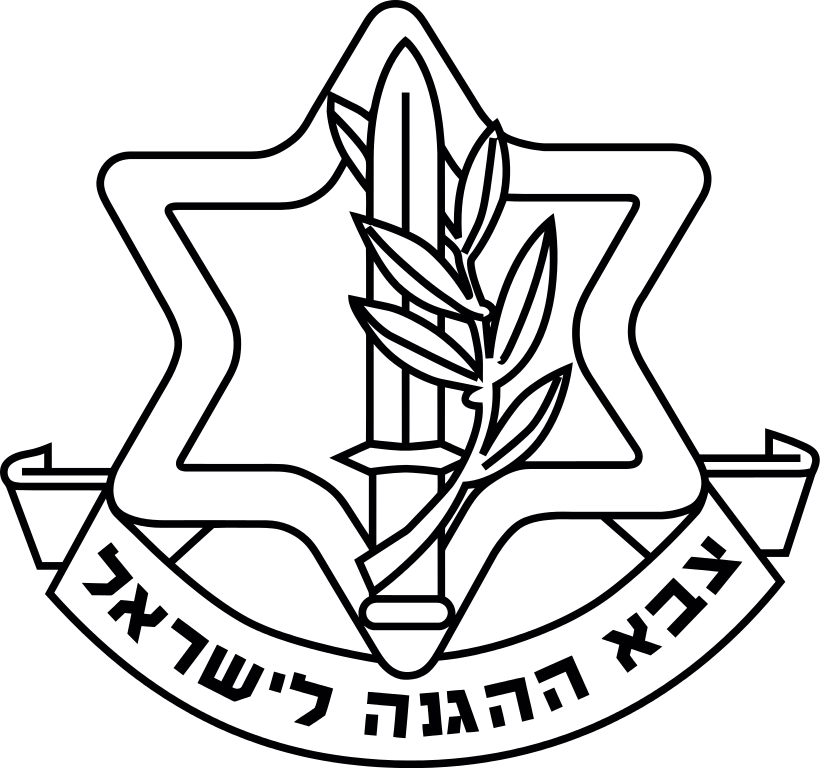Contributor(s): Shared on: Categories: Tags: | Source (Hebrew) | Translation (English) |
|---|
יְהִי רָצוֹן מִלְּפָנֶיךָ
יְיָ אֱלֹהֵינוּ וְאלֹהֵי אֲבוֹתֵינוּ
שֶׁתַּצְנִיחֵנוּ לְשָׁלוֹם
וְתַדְרִיכֵנוּ לְשָׁלוֹם
וְתִסְמְכֵנוּ לְשָׁלוֹם
וְתַגִּיעֵנוּ לִמְחוֹז חֶפְצֵנוּ לְחַיִּים וּלְשָׁלוֹם
וּפְרוֹס עָלֵינוּ סֻכַּת שְׁלוֹמֶךָ |
May it be your will,
Hashem our elo’ah and elo’ah of our ancestors
that you help us parachute peacefully,
lead us to peace,
guide us to peace,
and bring us to our desired destination alive and in peace
and spread your canopy of peace over us. |
וְתַצִּילֵנוּ מִכַּף כׇּל אוֹיֵב וְאוֹרֵב
וּמֵרוּחוֹת מְצוּיוֹת וּשֶׁאֵינָן מְצוּיוֹת
וּמִכׇּל מִינֵי תַּקָּלוֹת בָּאֲוִיר
וּבַנְּחִיתָה
וְתִתְּנֵנוּ לְחֵן וּלְחֶסֶד וּלְרַחֲמִים בְּעֵינֶיךָ
וּבְעֵינֵי כׇּל רוֹאֵינוּ
כִּי אֵל שׁוֹמְרֵנוּ וּמַצִילֵנוּ אָתָּה,
כִּי אֵל מֶלֶךְ חַנּוּן וְרַחוּם אָתָּה |
Rescue us from any enemy or ambush along the way
and from known or unexpected winds
and from any other mishaps due to atmospheric conditions
or during landings
and let us receive grace, kindness and compassion from you
and from all who encounter us
because you are El who protects and rescues
and because you are a king who is kind and compassionate. |
וּשְׁמֹר צֵאתֵנוּ וּבוֹאֵנוּ
לְחַיִּים וּלְשָׁלוֹם מֵעַתָּה וְעַד עוֹלָם
כִּי אַתָּה שׁוֹמֵעַ תְּפִלַּת עַמְּךָ יִשְׂרָאֵל
בְּרַחֲמִים,
בָּרוּךְ אַתָּה יְיָ שׁוֹמֵעַ תְּפִלָּה. |
May you guard our comings and goings
for life and peace from now and ever more
because you listen to the prayers of your people Yisrael
with compassion.
Blessed are you Hashem who listens to prayer. |
“Tefilat haDerekh l’Tsanḥan,” a prayer by Rabbi Shlomo Goren for missions of paratroopers in the service of the IDF was first published in his Siddur Tefilot l’Ḥayyal (p. 75 in the 1963 printing). The earliest edition of the siddur that we have seen is from 1963 but there may be an earlier publication of this prayer. (If you know, please leave a comment or contact us.) Abe Katz prepared a working draft of this prayer (shared over the Passages of Rite Facebook group), which I edited. –Aharon Varady Source(s)
Abe Katz is the director of the Burei HaTefila Institute.
The Beurei Hatefila Institute was established in order to encourage the study of the words of the Siddur as a Jewish text in Jewish schools. To assist educators developing courses on Tefila, the Institute publishes a weekly e-mail newsletter in which it traces the sources for the words and structure of the prayers within the Siddur. These and other resources can be downloaded on PDF from the Burei HaTefila Institute website.
Mr. Katz is also available to teach courses on Tefila at your synagogue or Jewish Community Center and as a scholar-in-residence. He is available to meet with school administrators to assist them in establishing a course in Beurei Hatefila at their schools and to train teachers on using Hebrew-English word processing and Judaic libraries on CD-ROM. Shlomo Goren (Hebrew: שלמה גורן) (February 3, 1917 – October 29, 1994), was an Orthodox Religious Zionist rabbi in Israel, a Talmudic scholar and foremost authority on Jewish law. Following the establishment of the State of Israel, Goren was appointed Chief Rabbi of the Military Rabbinate of the IDF with the rank of Major-General, a position he held until 1968 when he was chosen as Chief Rabbi of Tel Aviv. Later he served as the third Ashkenazi Chief Rabbi of Israel from 1973 to 1983, after which he established a yeshiva in Jerusalem, which he headed until his death. He served in the Israel Defense Forces during three wars, wrote several award-winning books on Jewish law. (via wikipedia) The Israel Defense Forces (IDF; Hebrew: צְבָא הַהֲגָנָה לְיִשְׂרָאֵל Tsva ha-Haganah l'Yisrael, lit. 'The Army of Defense for Israel'), alternatively referred to by the Hebrew-language acronym Tsahal (צה״ל), is the national military of the State of Israel. It consists of three service branches: the Israeli Ground Forces, the Israeli Air Force, and the Israeli Navy. It is the sole military wing of the Israeli security apparatus, and has no civilian jurisdiction within Israel. The IDF is headed by the Chief of the General Staff, who is subordinate to the Israeli Defense Minister. Aharon Varady (M.A.J.Ed./JTSA Davidson) is a volunteer transcriber for the Open Siddur Project. If you find any mistakes in his transcriptions, please let him know. Shgiyot mi yavin; Ministarot naqeni שְׁגִיאוֹת מִי־יָבִין; מִנִּסְתָּרוֹת נַקֵּנִי "Who can know all one's flaws? From hidden errors, correct me" (Psalms 19:13). If you'd like to directly support his work, please consider donating via his Patreon account. (Varady also translates prayers and contributes his own original work besides serving as the primary shammes of the Open Siddur Project and its website, opensiddur.org.) Read a comment / Leave a comment (moderated) Works of related interest: |












Leave a Reply